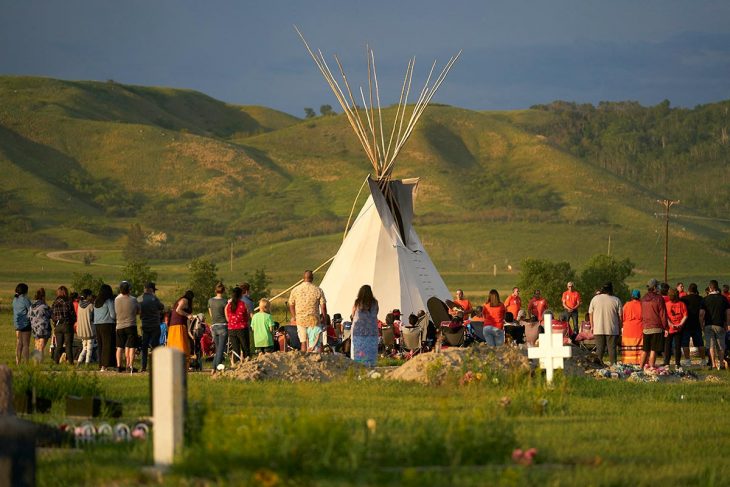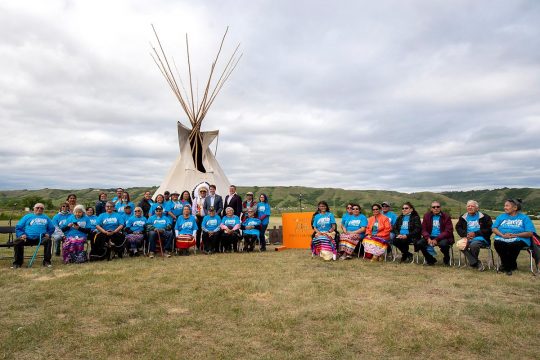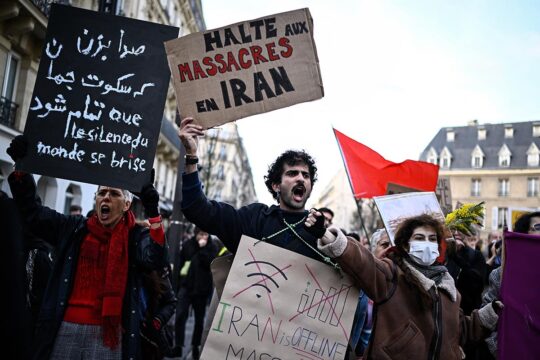To listen to the podcast, click on the “play” button below:
Over the past few months, several mass and unmarked graves have been identified near former residential schools for indigenous children in Canada. Such institutions were created with the explicit objective of removing children from their families and tribes, and forcing over them the culture, language and religion of Euro-Christian colonisers. They were the site of violence and abuse usually performed by religious orders and subsidised by the Canadian state.
Now human remains are surfacing, and with them the stories and experiences of victims and survivors are gaining more space in the spotlight and mainstream conversations. How is Canada dealing with the “discovery” of these unmarked graves and with the growing claims that what happened to indigenous children amounts to cultural genocide?
To discuss such a sensitive topic we asked for the help of not one, not two, not even three, but four experts. Ry Moran, a member of the Red River Métis and former founding director of the National Centre for Truth and Reconciliation, is now associate university librarian at the University of Victoria, with a focus on reconciliation, a groundbreaking position with the objective of decolonizing the university’s archives and collections. Fannie Lafontaine is a professor at the Faculty of Law of Laval University, holder of the Canada Research Chair in International Criminal Justice and Fundamental Rights and co-author of the legal analysis for the National Inquiry Into Missing and Murdered Indigenous Women and Girls (MMIWG). Historian Karine Duhamel is Anishinaabe-Métis and was the Director of Research for the MMIWG inquiry as well as managing the Forensic Document Review Project and the Legacy Archive. Andrew Woolford is professor of Sociology & Criminology at the University of Manitoba and former president of the International Association of Genocide Scholars, with a specific focus on cultural genocide against Indigenous Peoples in North America.
 ASYMMETRICAL HAIRCUTS
ASYMMETRICAL HAIRCUTS
This podcast has been published as part of a partnership between JusticeInfo.net and Asymmetrical Haircuts, a podcast on international justice produced from The Hague by journalists Janet Anderson and Stephanie van den Berg, who retain full control and independence over the contents of the podcast.






